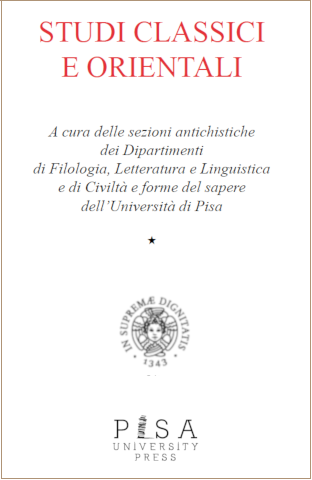Polybius and the outbreak of the First Punic War
Abstract
The aim of this article is to provide an institutional analysis of the passage by Polybius (1, 11, 1-3) concerning the outbreak of the First Punic War, and particularly the debate arose in Rome about the possibility to accept the Mamertines’ request for help. The ‘issue’ is represented by the role that Polybius apparently attaches to the people and not to the Senate in the final decision, a fact that brought modern scholarship to look for which of the legislative assemblies Polybius was referring (comitia tributa or centuriata). Firstly, it is here suggested that the debates in Rome were two and that the one which is recorded was not concerning the acceptance of the Mamertines in an alliance, but the assignment of a military command to the consul Appius Claudius. Secondly, that the popular intervention took place within a senatorial debate in the form of a contio, as it is suggested by several elements in the language of Polybius, i.e. the status of those who attended the meeting, the role played by the consul and the final decision by the assembly. A new political interpretation of the passage is hence proposed, namely that the consul used the will expressed by the people in the contio to force the Senate and to obtain the command he was asking for, a reconstruction which is confirmed by the text of Livy (Per. 16) and which fits that of Polybius as well.michele.bellomo@unimi.itFascicolo
Sezione
Articoli


